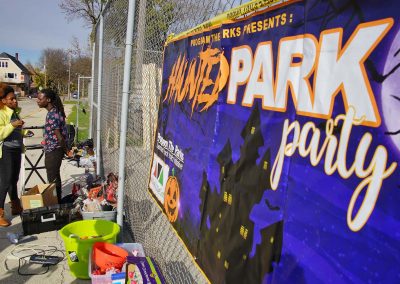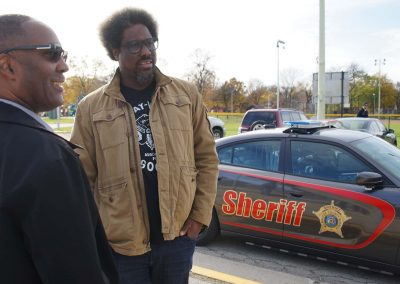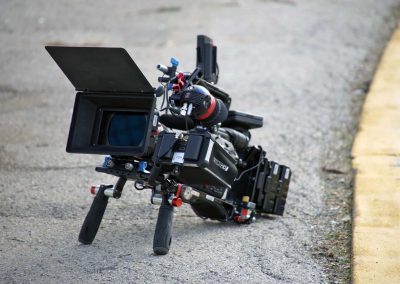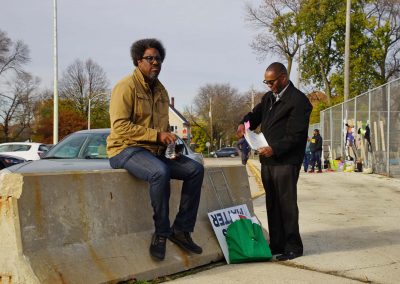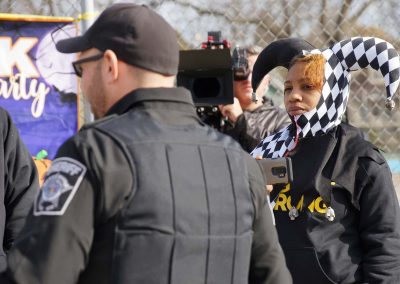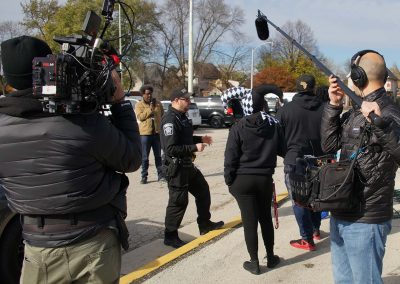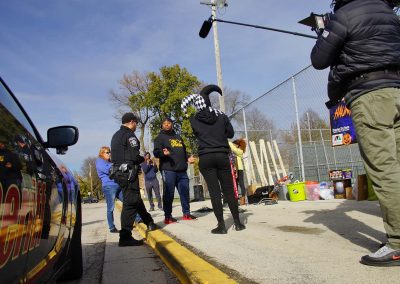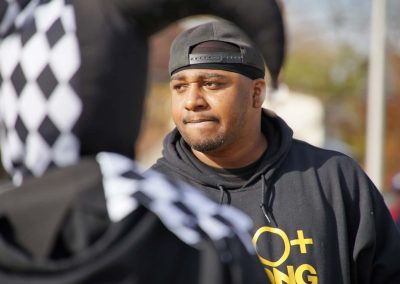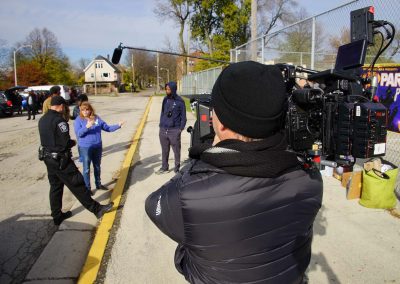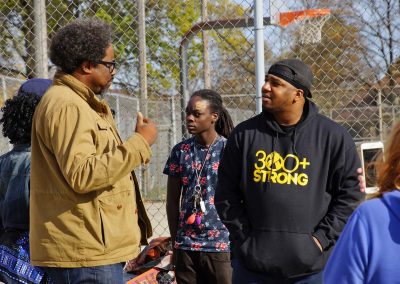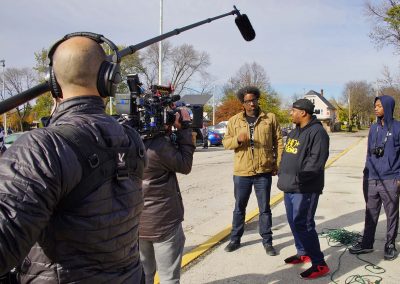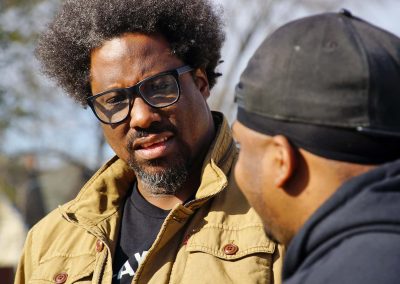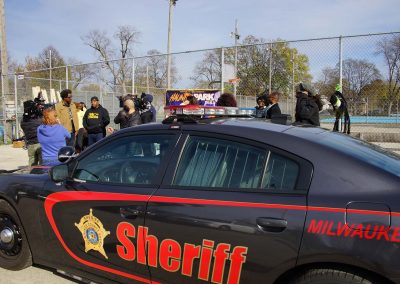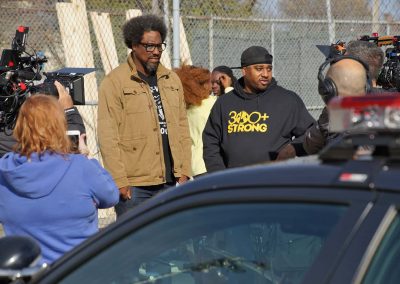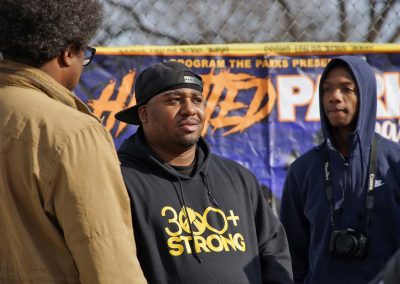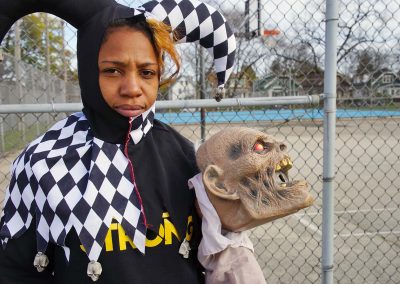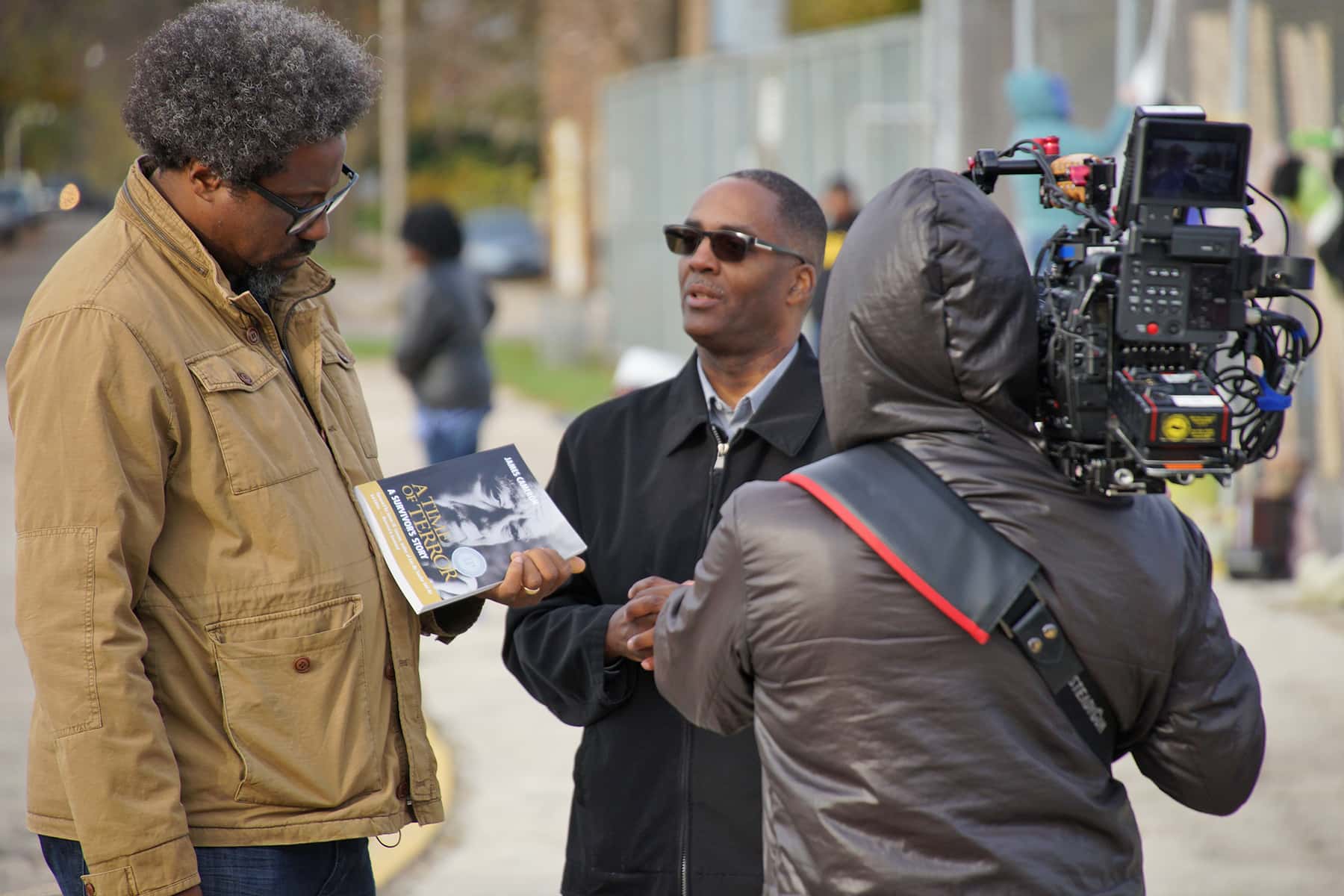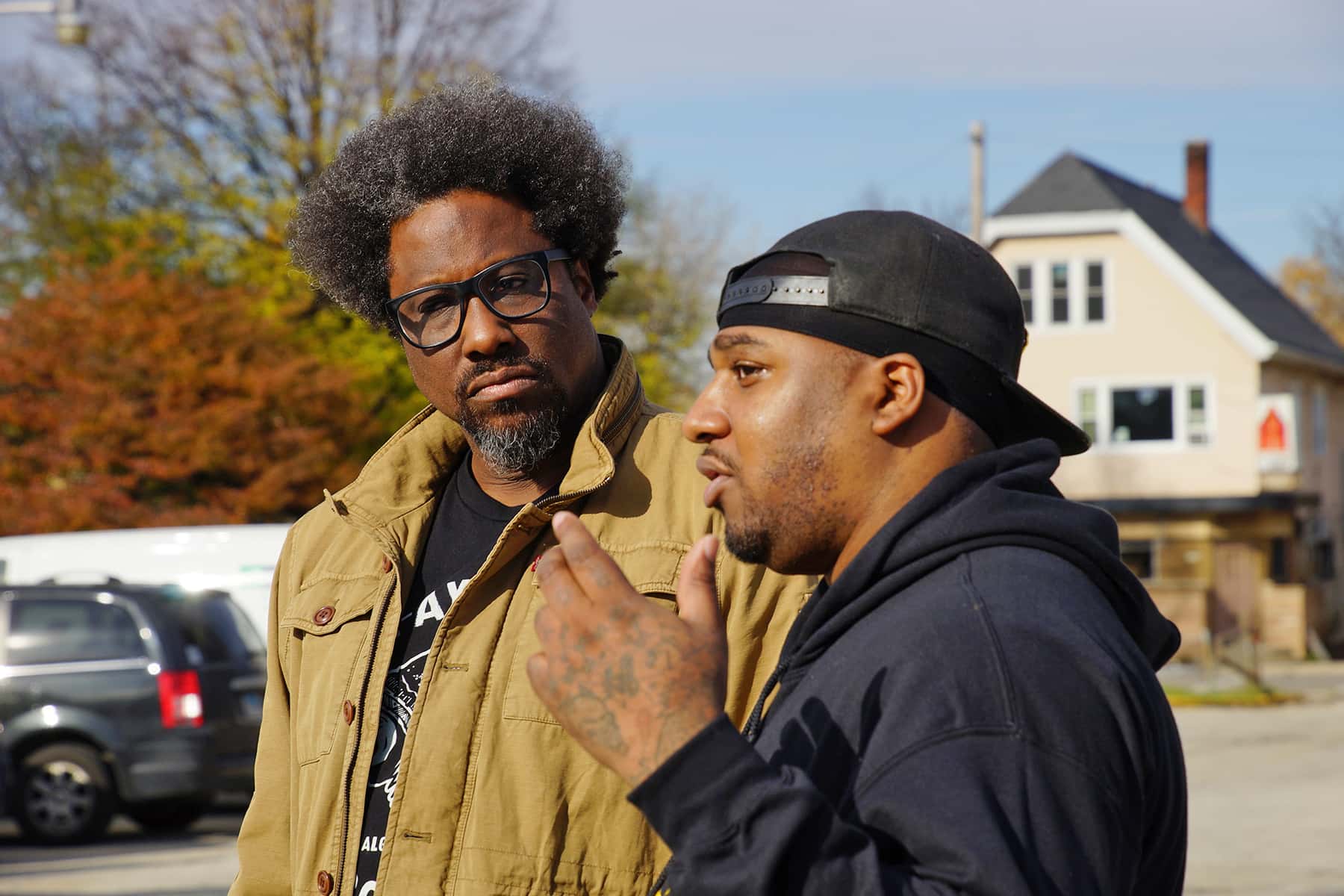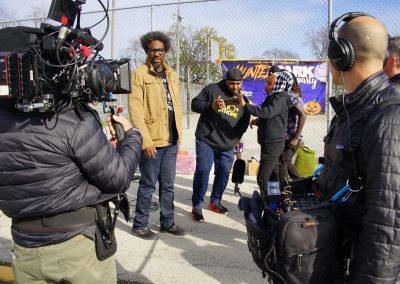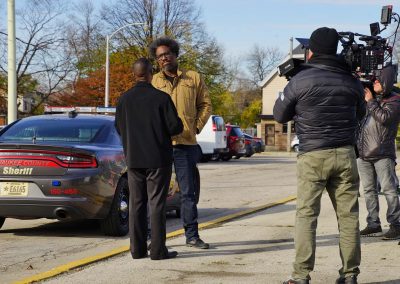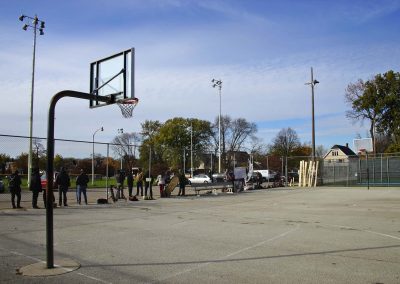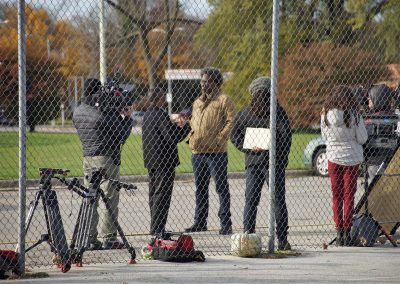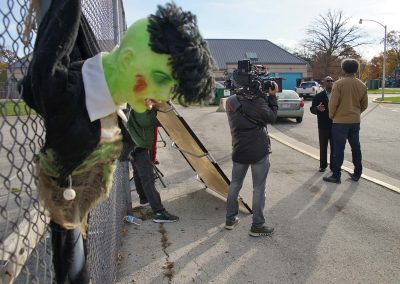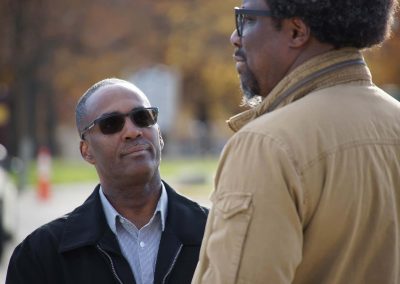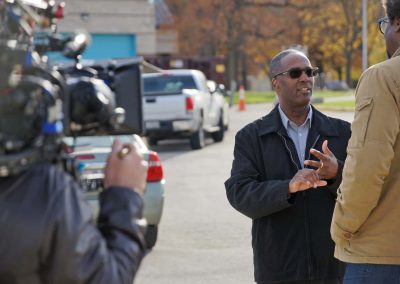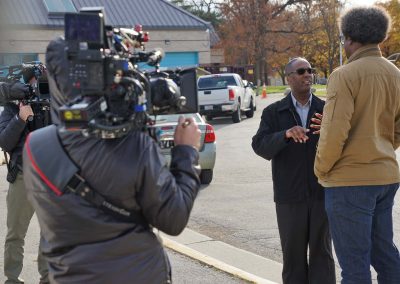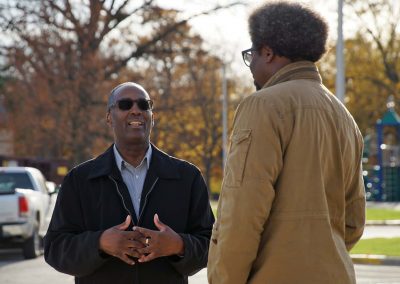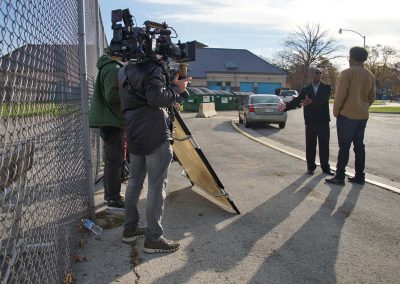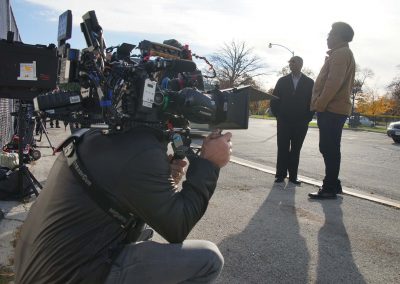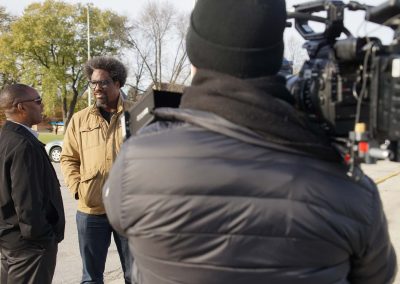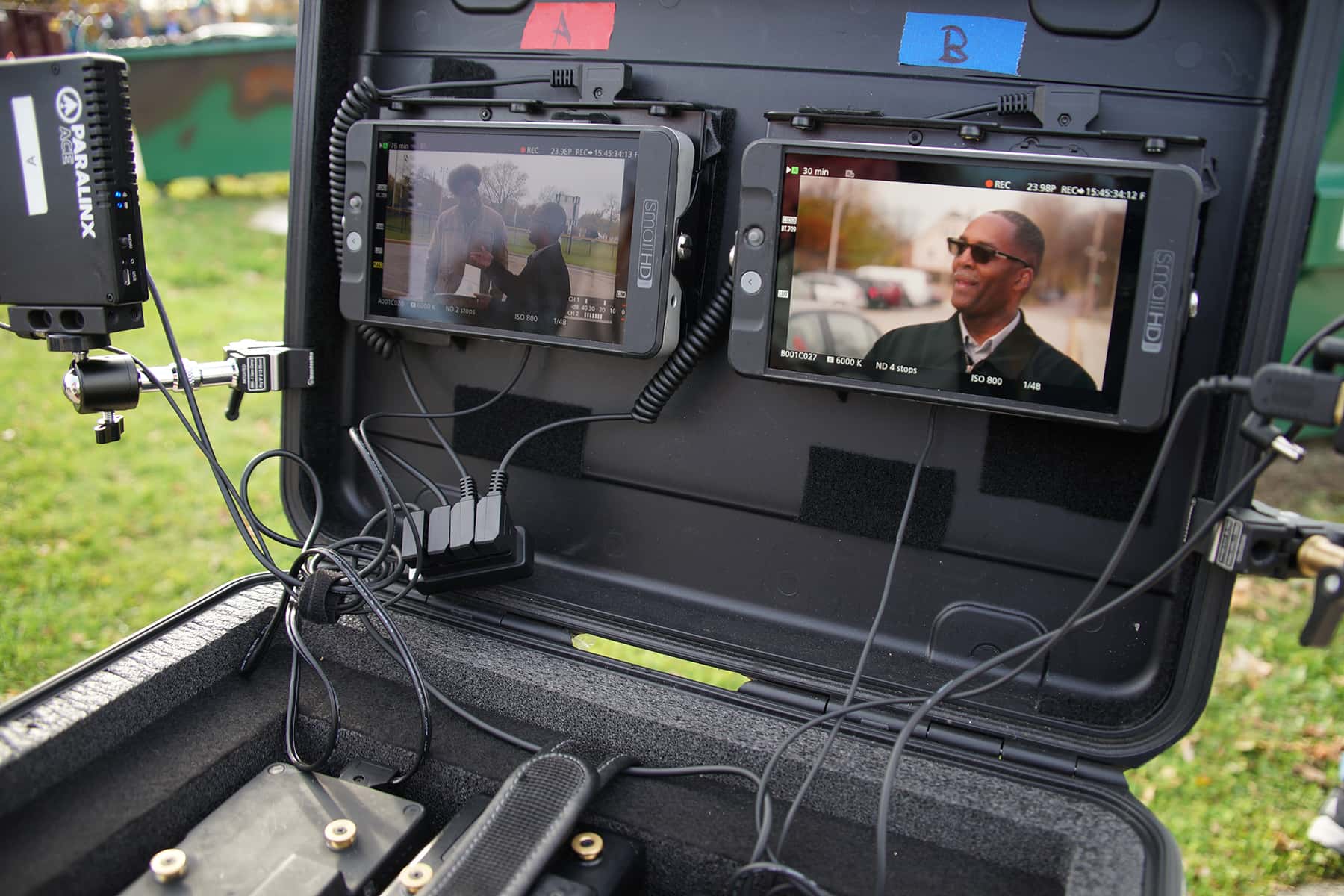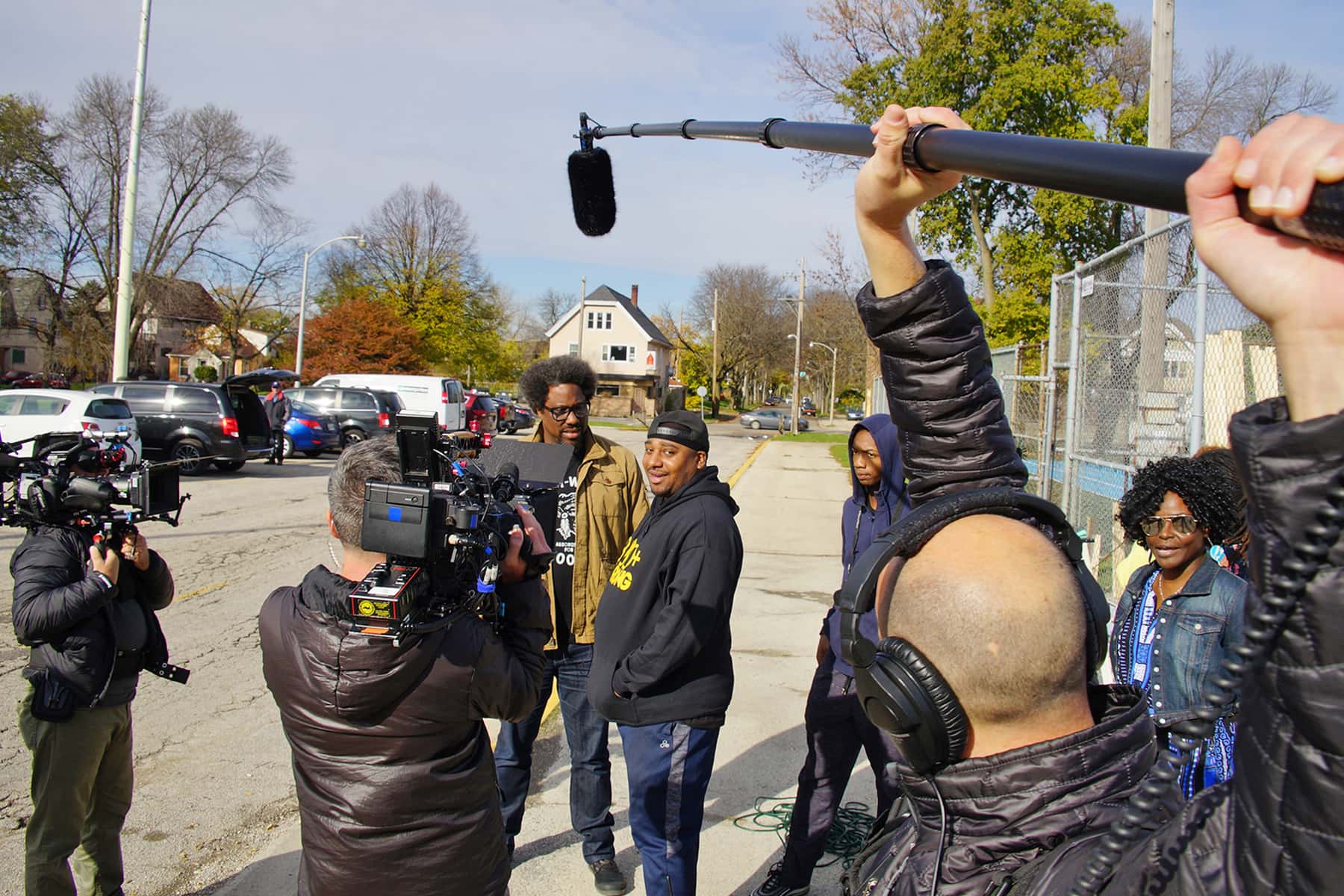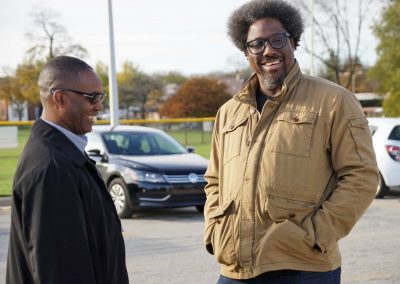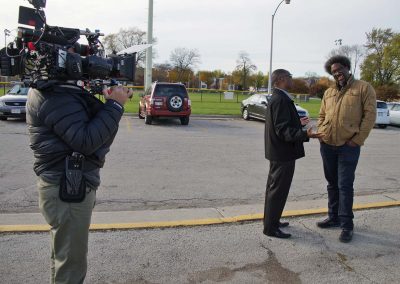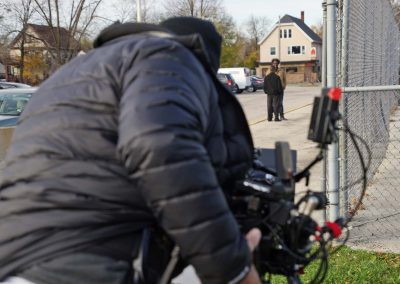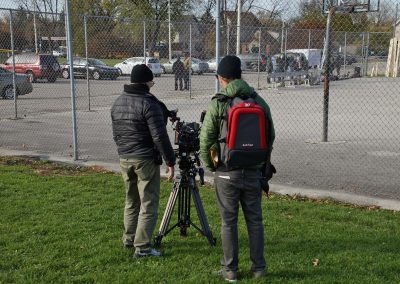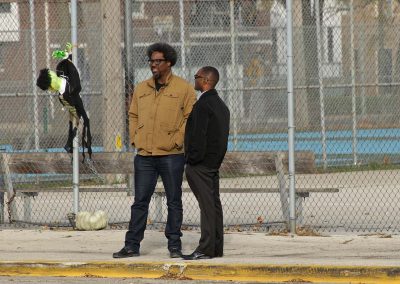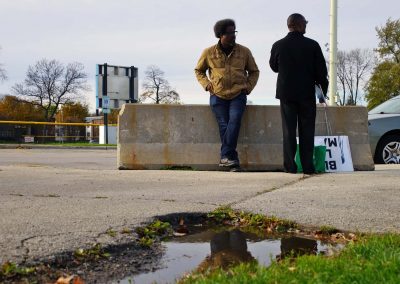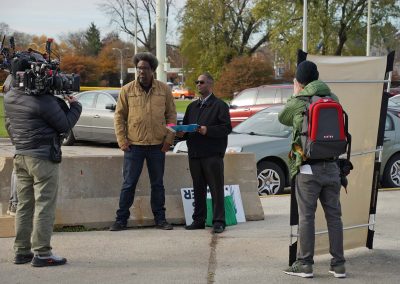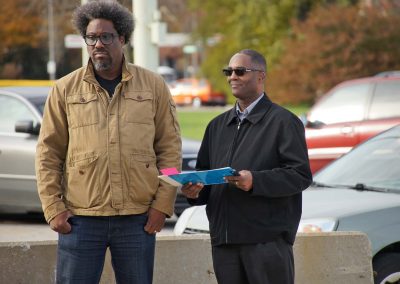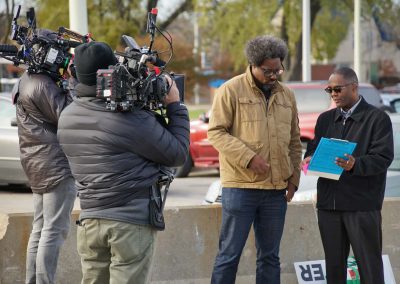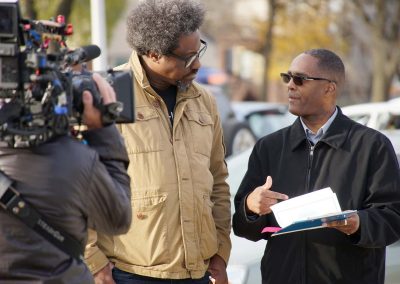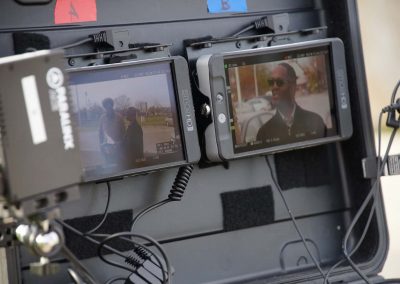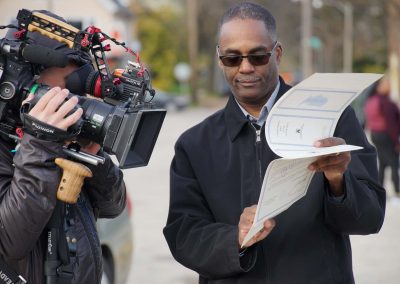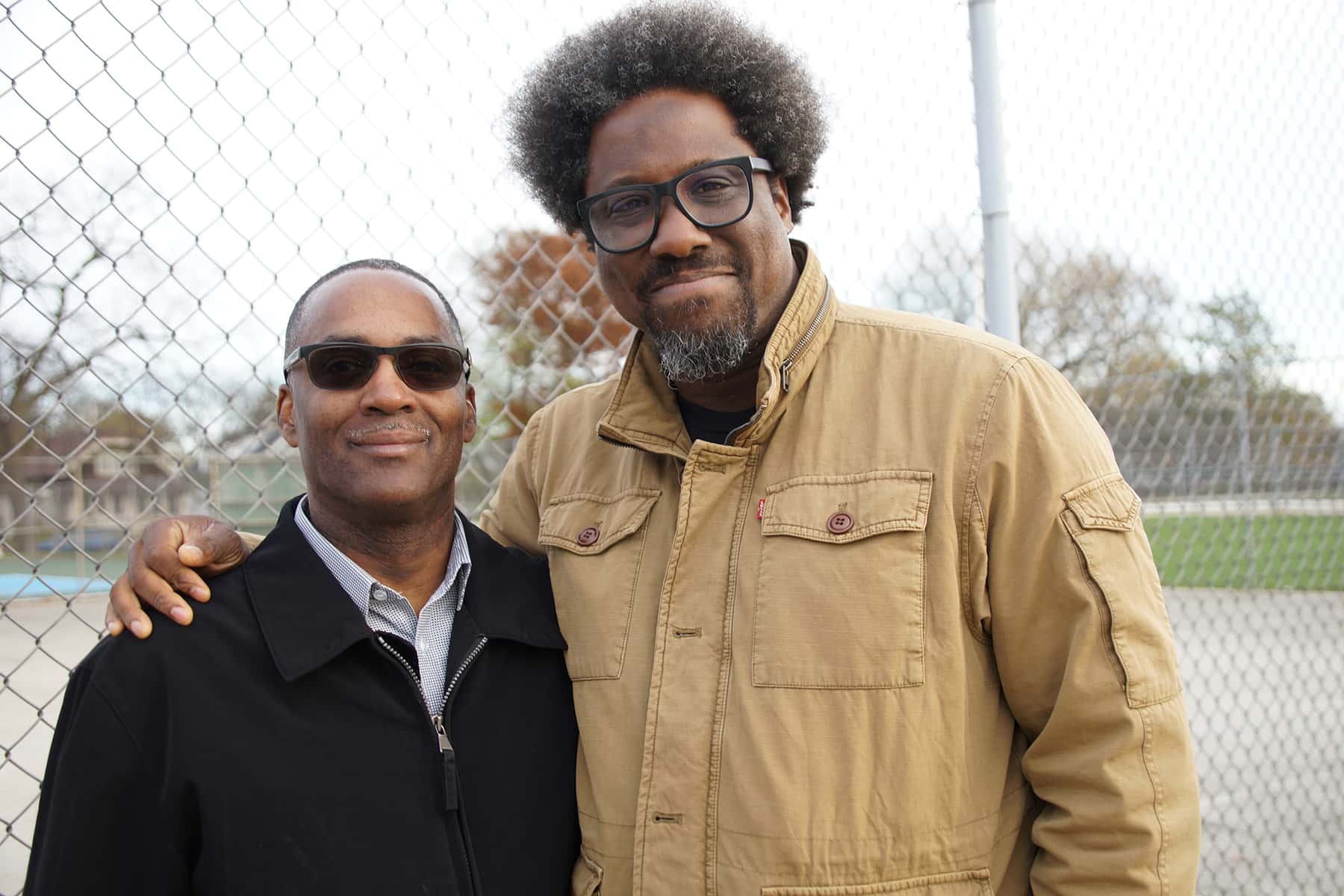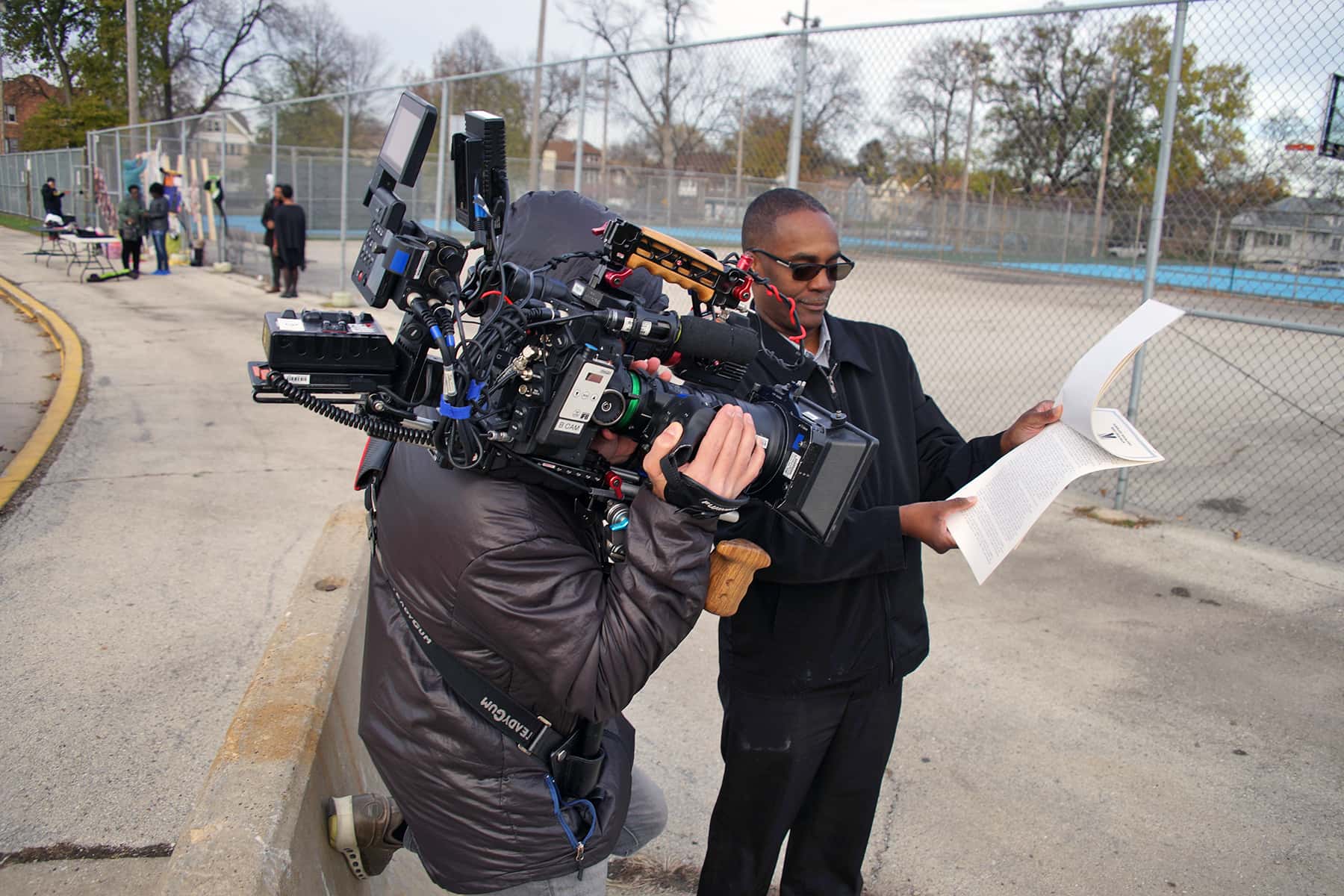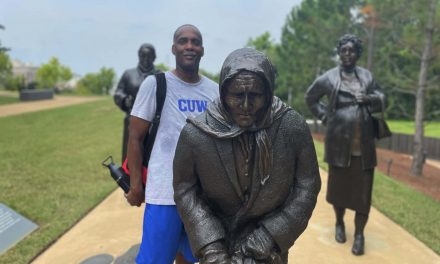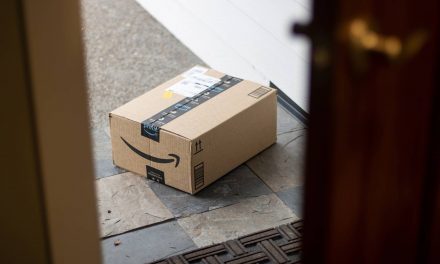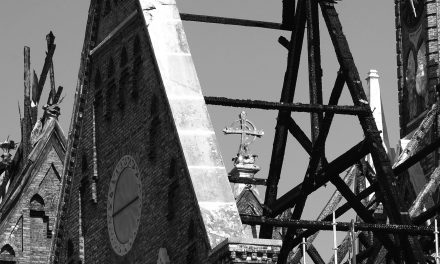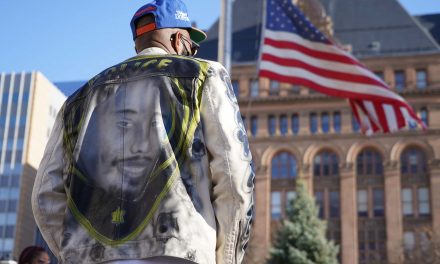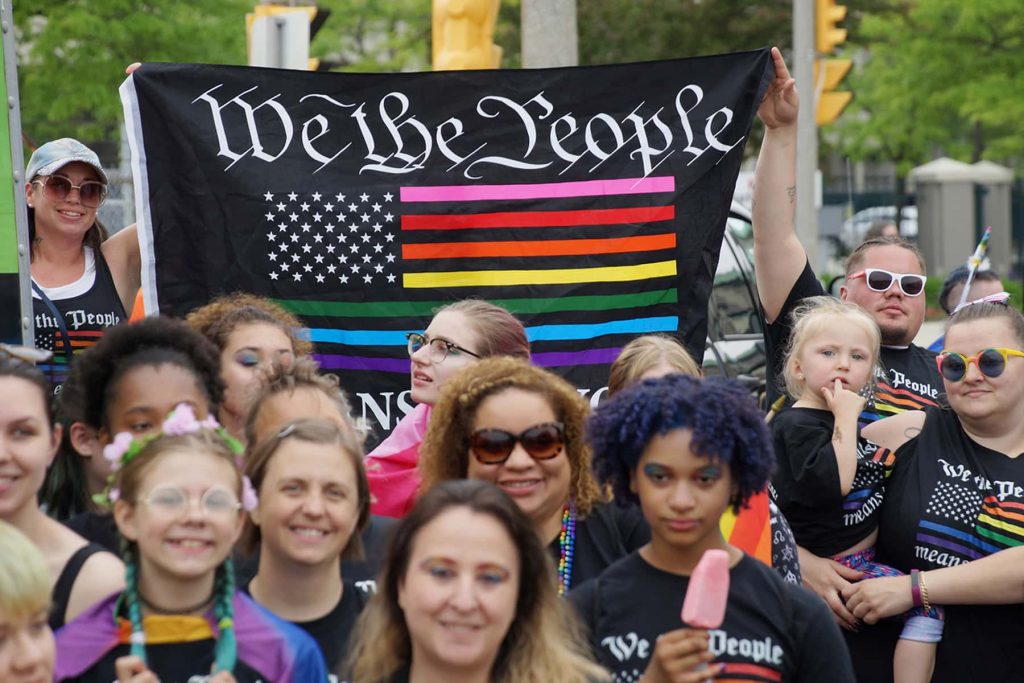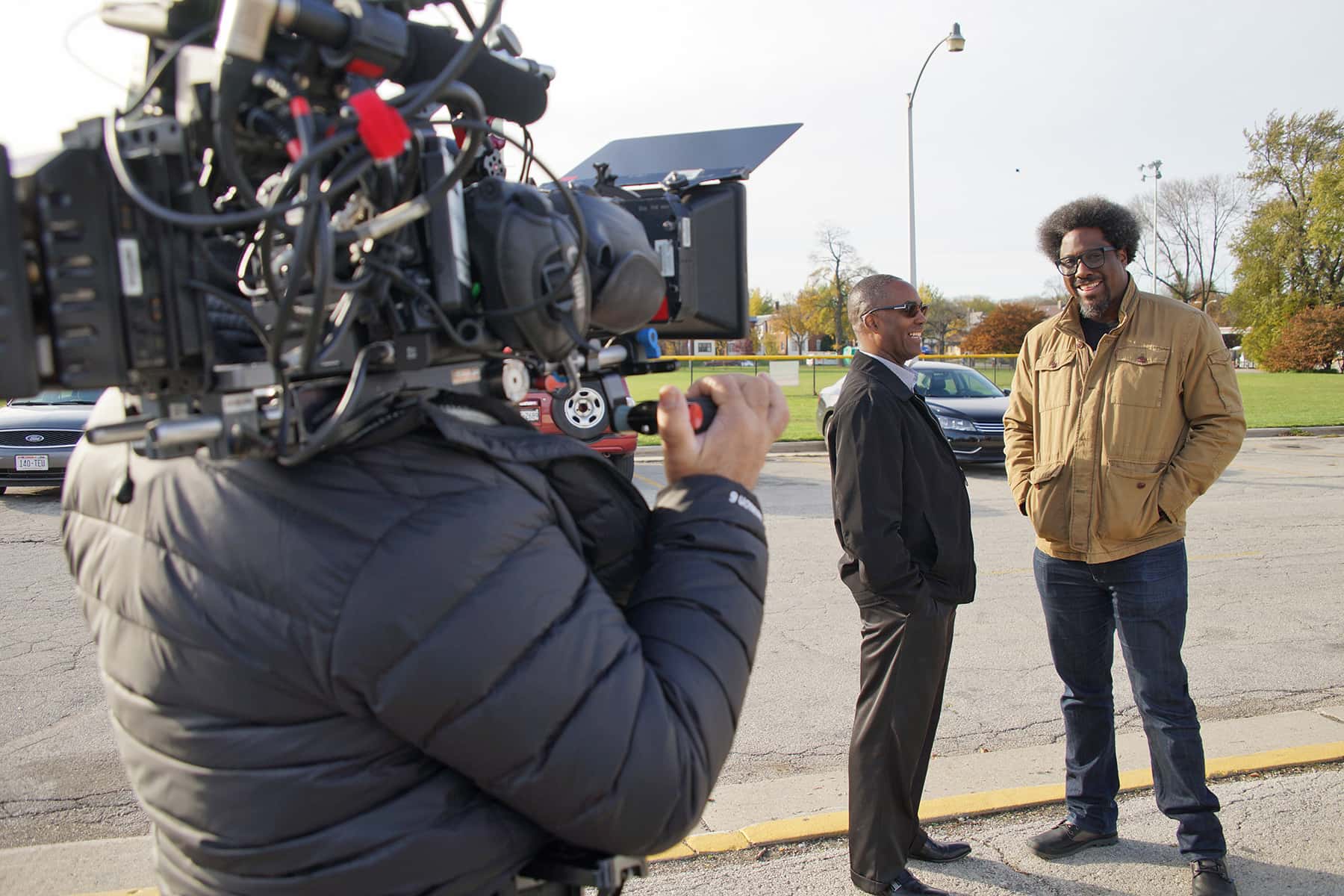
CNN broadcast its highly anticipated Milwaukee-based episode of United Shades of America on June 9.
The network referred to the episode as “Living While Black in Milwaukee.” The crew from CNN came to Milwaukee for a few days last October to film the segment. They interviewed me in Sherman Park, discussing the civil unrest of August 2016. I talked about the events and issues leading up to the incident that arose after the shooting death of Sylville Smith. I wrote an article about the topic back during the second day of the unrest.
Lisa Ceasar, Chief Operating Officer for No Studios and sister of Academy Award winner John Ridley, invited several of the people featured in the CNN program to participate in a talkback session after screening the episode in their theater on the evening of June 9 when it broadcast.
I led the discussion afterwards, speaking with Maria Hamilton – the mother of Dontre Hamilton, who was killed by a Milwaukee police officer in Red Arrow Park, as well as Jared English of the ACLU – who was also featured in the show to talk about the lawsuit they filed against the Milwaukee police department, over their stop-and-frisk policies among many other issues.
I have waited anxiously over the past eight months for the program to be completed. when it finally aired on national television, many around the community asked me about the topics I explored with CNN when they came to Milwaukee. As I have done consistently for the past few years, my main public presentations are designed to contextualized the history of segregation in Milwaukee. Unfortunately, little has changed since the events that brought national – and international – media attention to the city in 2016.
W. Kumau Bell and his colleagues traveled around the Milwaukee speaking to multiple people from the community about the experiences of blacks. Dr. Monique Liston spoke with them about training she conducts to bring awareness to the lived experiences of blacks that include many micro-aggresions, small but very damaging everyday instances of verbal and social abuse.
Several members of Leaders Igniting Transformation (LIT), a youth of color led organization, spoke about their negative experiences in schools throughout the city. Representative David Crowley was part of a segment documenting dangerous interactions black men have had with Milwaukee police, including Bucks player Sterling Brown who was accosted and incapacitated by a taser after parking in a handicap spot at a south side drugstore.
The response to the #livingwhileblack program was very positive, based on the feedback I received during and after the screening at No Studios. Many expressed happiness that the issues they face regularly in Milwaukee were placed on a national stage.
Community activist Vaun Mayes, from Program the Parks, was featured during the show when a random white woman called the police on him for having the audacity to host a Halloween candy give away for youth in the park without a permit, which of course was not required. Vaun has done the same event each year since 2016, which should have been celebrated by this random woman instead of placing him and others in jeopardy by involving the police, just as the crew from CNN was setting up for my interview.
Syretta McFadden spoke to the issue of policies and practices of segregation, including redlining maps that made it nearly impossible for many blacks to receive loans to purchase homes.
John Ridley and Lisa Ceasar spoke about their memories of all the black families in Mequon living on the same block when they were children. These everyday lived experiences in spaces where people of color are made to feel unwelcome was touched on in the segment about coffee shops where blacks have had the police called on them for simply “living while black.”
One of the other issues that came up in the episode was the need for people to move from being “Woke” to becoming activists. Thomas Haslett, an audience member gave me permission to steal this line from him moving forward.
Dorinthia Robinson, a member of the Board of Directors for the Brown Deer school district, also joined me during the talkback. She took the issue of holding elected officials accountable to a whole new level by telling audience members that it was not enough to just do that, but people must strive to become one of these elected officials as she has done.
Milwaukee residents are well aware that the city has a long way to go to solve problems that have been decades, even centuries in the making. I feel alternately optimistic and pessimistic depending on the day. Some things make me feel very strongly that we are making progress, and then the continual negative events we see in headlines about make me wonder if anything will ever really change in America.
Progress and activism and resilience are hallmarks of the black experience in Milwaukee, as well as the rest of the country. We cannot afford to stop fighting for our rightful place as citizens of Milwaukee.
“Power concedes nothing without a struggle.” – Frederick Douglas
This video segment is the original and unedited livestream video Vaun Mayes posted to Facebook on October 31, 2018 while CNN was filming at Sherman Park. The Milwaukee Independent was invited to photo document a behind-the-scenes look at the production process for the Reggie Jackson interview portion of United Shades of America, Season 4, Episode 7, #livingwhileblack.
© Photo
Lее Μаtz

